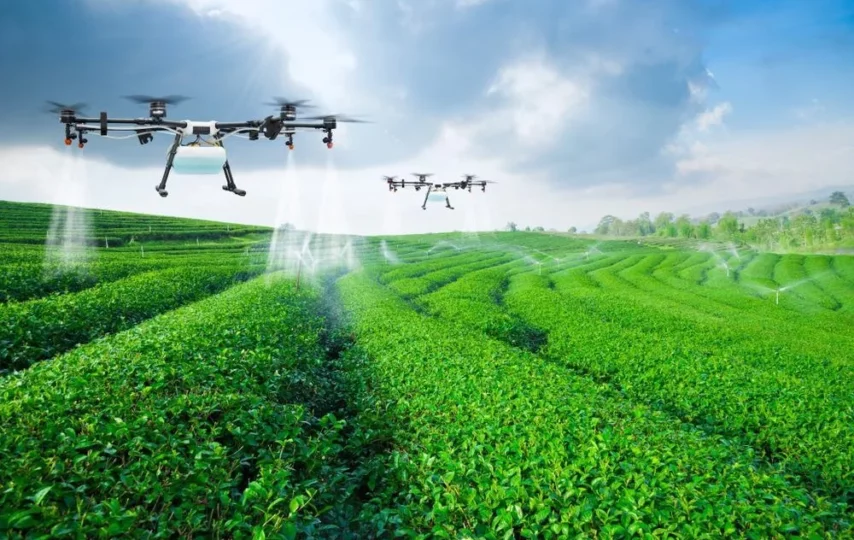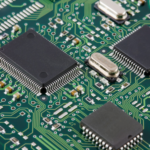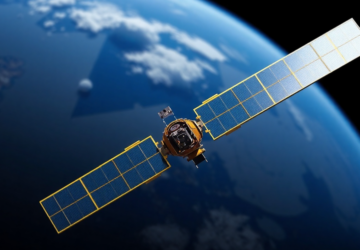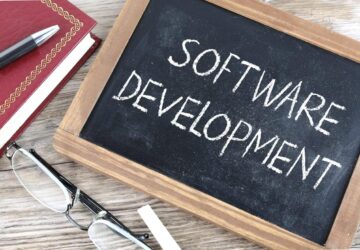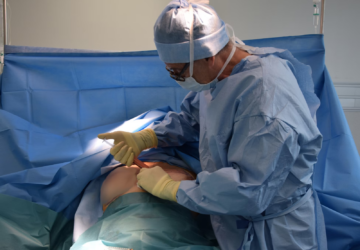In recent years, technology has been making its mark in various industries, and agriculture is no exception. The integration of drones in agriculture has brought about significant advancements, transforming the way farmers manage their fields. In this blog post, we will explore the myriad benefits of using drones in agriculture and how they are shaping the future of farming.
Drones in Agriculture: A Game-Changer
Drones have rapidly gained popularity in the agricultural sector, offering farmers an array of benefits. From crop monitoring to precision agriculture, drones have revolutionized the way farming is done. Let’s delve into some of the key advantages:
- Crop Monitoring and Management Drones equipped with high-resolution cameras and advanced sensors can provide real-time aerial imagery of crops. This helps farmers identify potential issues such as pests, diseases, or nutrient deficiencies. By pinpointing problem areas early, farmers can take prompt action, minimizing crop damage and optimizing yields.
- Precision Agriculture Precision agriculture involves the use of data-driven techniques to enhance farming efficiency. Drones play a crucial role in this by collecting data on soil quality, moisture levels, and crop health. This information enables farmers to tailor their farming practices, such as irrigation and fertilization, to specific areas of their fields, resulting in reduced waste and increased productivity.
- Faster and More Efficient Crop Scouting Traditional crop scouting methods are time-consuming and labor-intensive. Drones can cover large areas quickly, allowing farmers to survey their fields with ease. This not only saves time but also reduces the physical demands on farmers.
- Spraying and Irrigation Some drones are designed for precision spraying and irrigation. They can accurately apply pesticides, herbicides, or fertilizers to crops, reducing chemical usage and environmental impact. Drones can also be programmed to follow specific flight paths, ensuring even coverage of the entire field.
- Livestock Management Drones are not limited to crop management; they can also assist in livestock management. They can be used to monitor livestock, check on their health, and identify any potential issues in remote or hard-to-reach areas of the farm.
- Cost-Effective Data Collection Drones offer a cost-effective way to collect valuable data about the farm. This data can be used for crop yield predictions, inventory management, and decision-making, ultimately increasing the profitability of farming operations.
Where to Get Your Agricultural Drones
As drones become an essential tool for modern farmers, it’s crucial to source reliable equipment and parts. If you’re looking to invest in drones for your agricultural operations, consider visiting the xdroneshop drone store. They offer a wide range of high-quality drones and accessories to suit your specific needs.
For those seeking drone parts or looking to build their custom solutions, xdroneshop’s dedicated section for drone parts is a valuable resource. You can find everything you need to keep your drones in optimal working condition.
Additionally, if you’re interested in FPV (First Person View) drones for more immersive aerial experiences, xdroneshop offers an excellent selection of FPV drones that are not only exciting for recreational use but also have potential applications in agriculture for detailed inspections and surveillance.
Conclusion
Drones have firmly established themselves as indispensable tools in modern agriculture. Their ability to provide real-time data, improve efficiency, and reduce operational costs makes them an attractive investment for farmers. Whether you’re a small-scale farmer or managing large agricultural operations, integrating drones into your workflow can lead to more sustainable and profitable farming practices. Visit xdroneshop to explore your options and embark on a journey toward smarter, more efficient agriculture.

